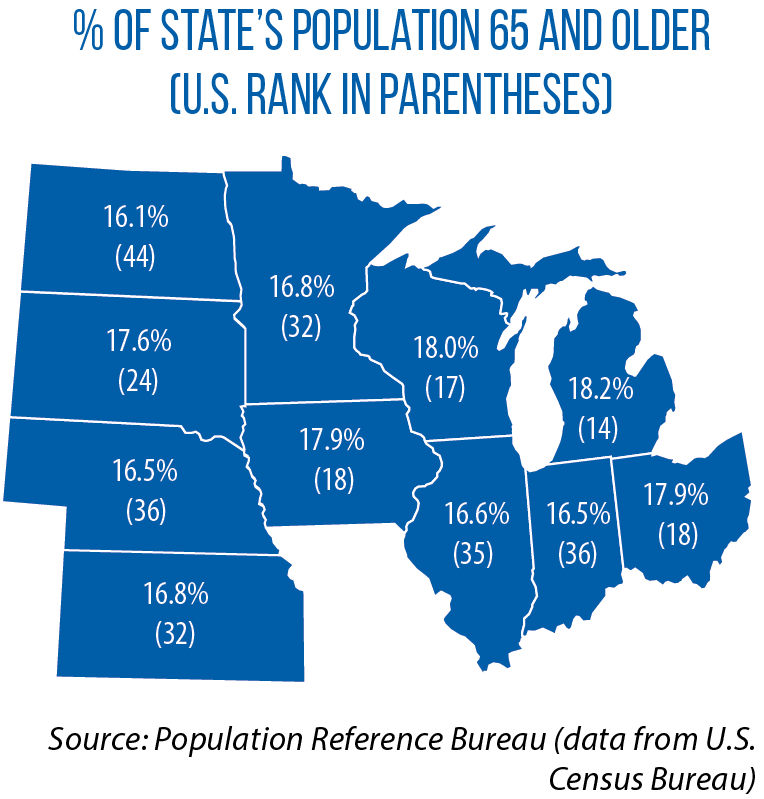
One tax-cutting idea that has gained momentum across Midwestern state legislatures in recent years: Allow people to keep more or all of their retirement income.
In 2022, Iowa lawmakers approved a sweeping measure (HF 2317) that excludes income from pensions, retirement benefit plans, annuities and IRAs. Nebraska, meanwhile, is ending its taxation of Social Security benefits by 2025 as the result of last year’s passage of LB 873. A proposal to accelerate elimination of the tax also was introduced this year (LB 641).
According to AARP, most Midwestern states already don’t tax Social Security benefits; Nebraska has been one of three exceptions, along with Kansas and Minnesota, where the benefits of some higher-income residents are subject to the state income tax. Along with the recent change in Nebraska, proposals to end all taxation of Social Security benefits have been under consideration this year in Kansas and Minnesota.
Michigan’s HB 4001, signed into law in March, phases out over the next four years a state “retirement tax” that had been implemented a decade earlier. As part of this new law, income from public and private pensions will be exempt from taxation, Mlive.com reports. This means public and private pension payments will not be taxed in four Midwestern states: Iowa, Michigan and Illinois, as well as South Dakota, which has no income tax at all. (Additionally, in Kansas, in-state, government pensions are not taxed.)
The post Recent legislative actions mean lower taxes for retirees in several states appeared first on CSG Midwest.


